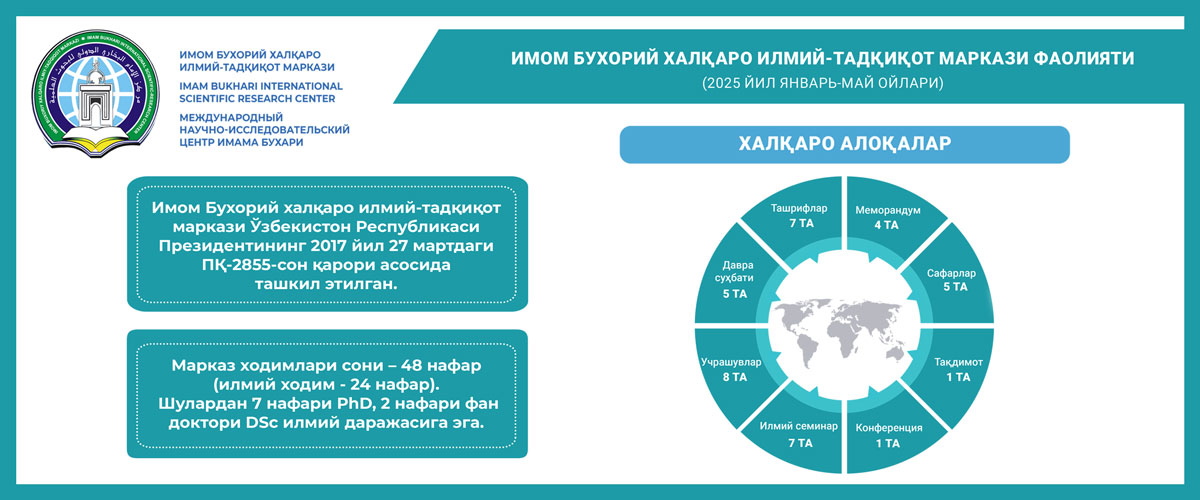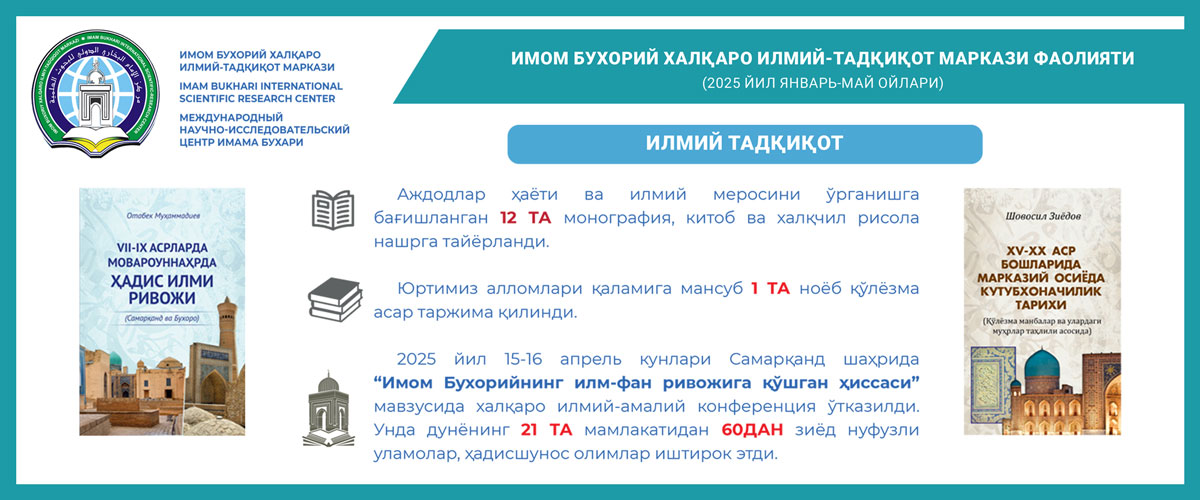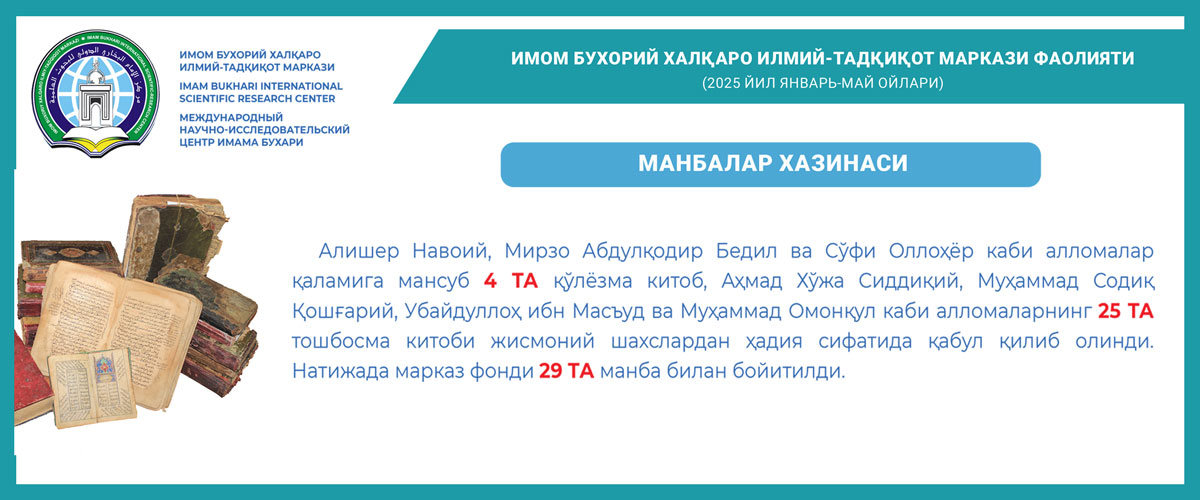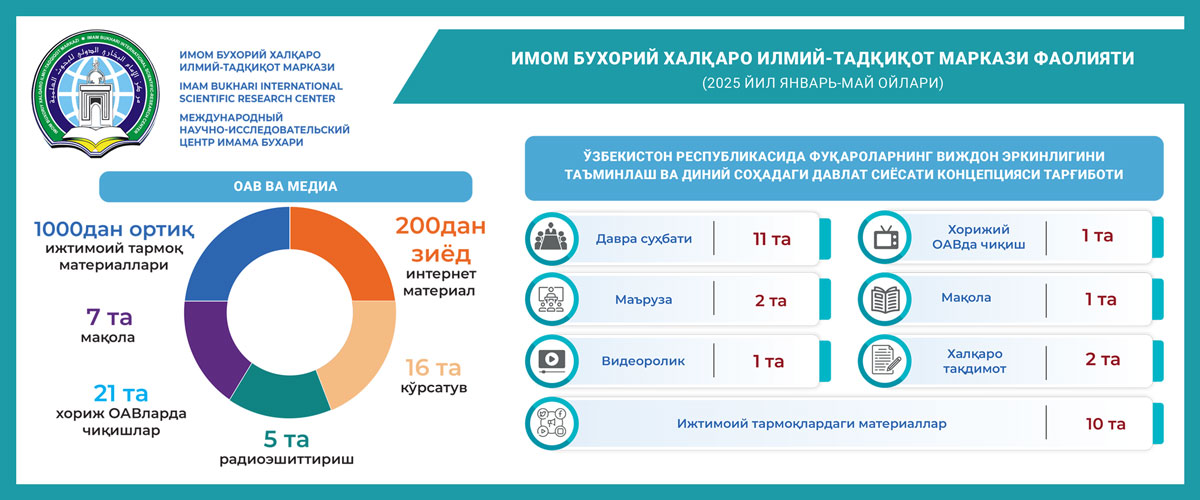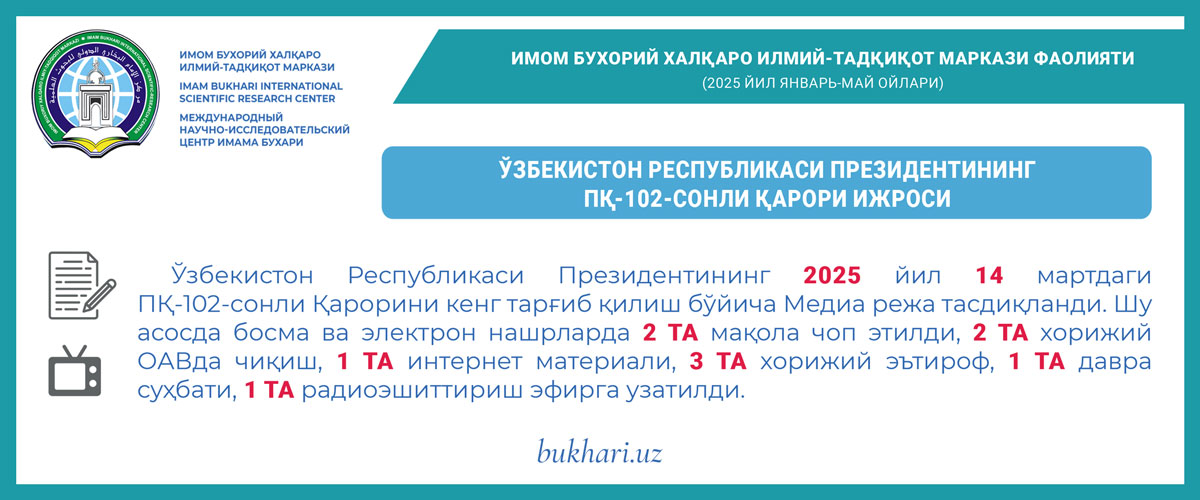Makhdumi A’zam lived at a time when social and economic conditions in Central Asia were suffering great crises and the area was being divided into several small khanates where different laws were in use because of the destruction of the Temurid dynasty. Consequently, robbery and breaches of law were flourishing in every part of the area and caravans following the Silk Road began to avoid their route through Central Asia which led to the isolation of Central Asia from the world civilization. On the second hand, the Shaybanids refused the secular sciences and began to develop the country according to the laws of Islam and this factor resulted in one-sided development of the society, isolated from the progressive principles of the spiritual world.
In accord to the wish of his parents, Makhdumi A’zam was engaged in agriculture and cattle-breeding from his childhood. One evening Makhdumi A’zam s mother put a copy of the Holy Qur’an under the pillow of her beloved son Sayyid Ahmad so that at night the evil spirits would not frighten him. In his dream, young Sayyid Ahmad saw an old and pleasant looking man who gave him a sacred book and told him to read it. When he woke up in the early morning, he saw the Holy Qur’an which had been put under his pillow by his mother. Greatly impressed by this veiy fact, a young fellow Sayyid Ahmad asked what kind of book it was. He was told that it was the Holy Qur’an. He insisted on reading and learning this book because his heart was full of intention to study.
He received the primary education from his father Mavlana Jalaliddin and later he attended the lessons delivered by Mir Sayyid Ali. Some sources inform that young Sayyid Ahmad also received lessons from Mullah Ziya. Mir Sayyid Ali was famous for his deep knowledge in morphology and syntax. Seeing his rare ability and thirst for knowledge, he taught him all the secrets of language. Noticing his intention to Sufism, Mir Sayyid Ali recommended Sayyid Ahmad to attend the lessons delivered by Mavlana Muhammad Qazi, who was the disciple of His Eminency Khoja Ahrar Vali. At that time Mavlana Muhammad Qazi was a lecturer at the madrasah situated not far from Sheikh Zayniddin Baba Mausoleum in Tashkent.
Makhdumi A’zam came to Tashkent accompanied by his uncle and they performed their prayers in Kukcha Mosque. Coming out of the mosque, young Sayyid Ahmad saw an honourable and respectful old man. He greeted him and said: “Sir, I recognized you. I have seen you in my dream”. This was a man called Mavlana Muhammad Qazi. Answering to his respectful greetings, Mavlana Muhammad Qazi said: “I knew, my dear, that you would come to see me”. Joining the conversation between the teacher and the future student, his uncle said: “Sir, if he suits your will, I would like you to receive my nephew as your student. His body flesh is yours but his soul is ours. This is my nephew Sayyid Ahmad. He is the son of Mavlana Jalaliddin of Akhsi”. Mavlana Muhammad Qazi said: “It’s OK, my little son. I’ve heard that Mavlana Jalaliddin is a well-educated person. To teach his son is a great honour for me”, and stroked his head for a while. “Go and find your friends in the madrasah and get acquainted with them” and showed the way to the classroom.
Thus, Makhdumi A’zam began getting education from Mavlana Muhammad Qazi and grew up a well-educated person. The title “Makhdumi A’ zam” was given to him by his teacher Mavlana Muhammad Qazi.
Makhdumi A’zam stayed at the disposal of Mavlana Muhammad Qazi up to the year of 1510 and in 1515, the latter died. Before getting a permission from his teacher Mavlana Muhammad Qazi to be engaged in the theory of Sufism, Makhdumi A’zam came to Bukhara and visited the graveyard of the Khajagans and showed his respect to the tombs of honourable Hazrati Khoja qaddasallahu (Bahauddin Naqshband) and Hazrati Khajagan (Abdukhaliq Ghijduvani) and other pirs (spiritual leaders) of the Naqshbandiya order.
Thanks to his rare ability and strong devotion to the principles of Sufism and law, Makhdumi A’zam soon became famous among the public and Shaybanids, who were devoted to the Islamic principles of behaviour, showed him a great respect and honour. During 1503-1509, a Shaybanid prince Janibek Sultan was a ruler of Akhsi and received Mavlana Jalaliddin and his son Makhdumi A’zam as his pirs (spiritual leaders). When he was appointed as a ruler of Miyankul (in Samarkand) in 1510, he asked permission from Mavlana Jalaliddin to let him take young Makhdumi A’zam with him to Samarkand. The Sultan’s request was satisfied and thus Makhdumi A’zam happened to be in Miyankul. Janibek Sultan allotted him a great piece of fertile land so that Makhdumi A’zam could get engaged in agriculture. Miyankul was an island between two branches of the Zarafshan River. In order to begin his agricultural activity, Makhdumi A’zam first planted ten willow trees. It is because of this fact that this small island began to be called “Dahbed” (in Persian “dahbed” means “Ten willow trees”). During 1514-1516, Makhdumi A’zam lived in Karmana, the capital city of the Shaybanids. At that time, he took an active part in the political affairs and tried to make peace in the country and conciliate the rivalling parties of the Shaybanid princes in their fights for the power. After the death of Shaybani Khan, Shaybani’s uncle Kuchkunchi Khan (1510-1530) became a ruler of the land. He was the grandson of Mirza Ulugbek. Again there began fights for the throne of Samarkand. Once it happened to be in the hands of Zahiriddin Muhammad Babur and then he lost the power which was seized by Ubaydulla Khan (1533-1539).
Ubaydulla Khan considered Makhdumi A’zam his own pir and performed all the rituals of obeying to him as an authoritative and respectful spiritual master and had his spiritual support. Makhdumi A’zam used to write commentaries on the ghazals written by the ruler Ubaydulla Khan. Makhdumi A’zam wrote his work “Risalai sharhi rubaiyati Ubaydi” (A Monographic Research on the Commentaries of Ubaydulla’s rubais) for the sake of his devout follower.
The ruler of Bukhara Iskandar Khan was also a devout disciple of Makhdumi A’zam. When he had a son, he asked Makhdumi A’zam to choose a name for the little baby and Makhdumi A’zam called him Abdullah and foretold his future that during his reign in future the country would flourish, the science and education would develop up to their zeniths. And really later, during the reign of Abdulla Khan, the prediction of Makhdumi A’zam came true and Bukhara reached its highest level of development.
 Imom Buxoriy xalqaro ilmiy-tadqiqot markazi bukhari.uz
Imom Buxoriy xalqaro ilmiy-tadqiqot markazi bukhari.uz
